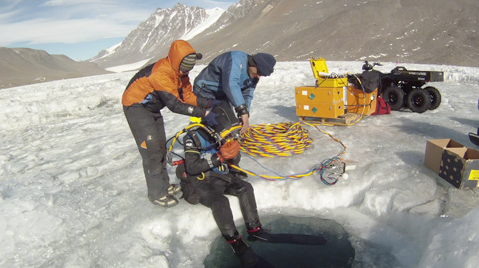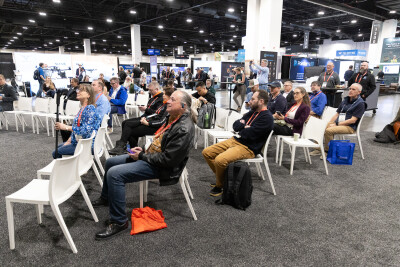As I’ve been working on this article about underwater laser scanning, triggered by the release of Newton Labs’ nuclear-industry-focused underwater laser scanner, I came across this very intriguing blog post from a researcher at UC Davis.
It would appear that Tyler Mackey is not only doing laser scanning underwater, but he’s doing it in freakin’ Antarctica, under feet of ice, so at to examine microbial growth in adverse conditions and learn more about the building blocks of life.
The mention of laser scanning is tantalizingly brief:
After a month of exploration covering everything from copepods to 3D laser scans of microbial structures, ice cores to carbonate distribution, our two members from B-203 departed and G-441 moved on the Joyce (albeit in fits and starts).
With some more googling, I found this release from UC Davis about the project:
Sumner, Mackey and an international research team arrived at Lake Joyce, in the dry valleys of Antarctica, in October and camped there for about six weeks. They carried out dives in the 120-foot deep lake, which is permanently covered with 20 feet of ice. During the dives, they used a laser-scanning device to record three-dimensional data about structures in the lake; they also collected sediment and water samples.
Twenty feet of ice? It’s continually amazing to me what people will brave in the name of scientific exploration (then again, people here in Maine go surfing in the middle of winter so I guess there are crazy people in the pursuit of all kinds of stuff).
I’ve got an email in to Sumner asking for some more details. From the sound of it, though, they’re doing some very interesting work with 3D imaging.
Check out the KeckCAVES site for more of the work they’re doing with 3D and virtual reality, even though it seems to be a bit out of date.






